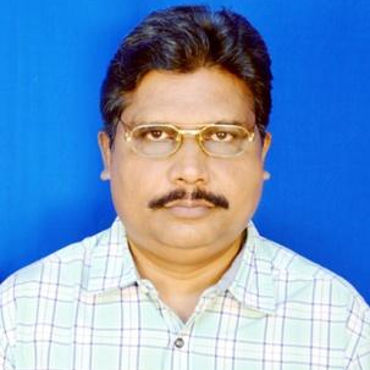
Shri. B.N.Dileep
Environmental Survey Laboratory, BARC, Kaiga
Bio-data:
Shri. B.N.Dileep is senior scientist and head, Environmental Survey Laboratory, Bhabha Atomic Research Centre (BARC), Kaiga, Karnataka. He is manager of Emergency Response Centre (ERC) of Kaiga site, which is one the twenty four ERCs established by BARC and member of Kaiga Offsite emergency advisory committee. He joined in health physics Division, BARC in 1988 after completing post graduate degree in Physics from the University of Calicut and received Associated Member (IETE) from the Institution of Electronics and Telecommunication Engineers in 1993. He worked as health physicist in Narora Atomic Power Station, U.P. and Kaiga Atomic Power station, Karnataka prior to taking up the present assignment since 2010. His research interests are in the areas of development of equipments and systems for mornitoring radioactive noble gases in the atmospheric environment and application of Cerenkov photon counting technique for process monitoring in pressurized heavy water reactors.
Abstract:
Title: Impact of Radiation on Human and Environment
We live in world in which radiation is naturally present every-where. Light and heat from the Sun are essential to our existence. Radioactive materials occur naturally throughout the environment, and our bodies contain radioactive materials such as carbon-14, potassium-40 etc. All life on Earth has evolved in the presence of this radiation. Radiation can be produced artificially, as in medical X-rays and microwaves for cooking. The first use of X- rays was in medical diagnosis, within a few months of the discovery by Wilhelm Rontgen in 1895. Today radiation is used in medicine, academics, industry, as well as for generating electricity. In addition, radiation has useful applications in such areas as agriculture, archaeology, space exploration, law enforcement, geology, and many others.
Radiation can be classified according to the effects it produces on matter, into non-ionizing and ionizing radiation. The various forms of radiation can be either beneficial or harmful, depending on their use and control. The greatest concern about ionizing radiation stems from its potential to cause malignant diseases in people exposed to it and inherited defects in later generations. The likelihood of such effects depends on the amount of radiation that a person receives. For that reason, regulation of certain radioactive sources is necessary to ensure that people and the environment are protected from unnecessary or excessive exposures. The United Nations agency for nuclear science and its peaceful applications, the International Atomic Energy Agency (IAEA) offers expertise and programmes to foster the safe use of radiation internationally. It has a statutory responsibility for the development of safety standards that are applicable to managing the wide variety of applications that use radiation. Atomic Energy Regulatory Board(AERB), constituted by the government is to ensure the use of ionising radiation and nuclear energy in India does not cause undue risk to the health of people and the environment.
There is a general heightened sense of concern about radiation among the public. It is strengthened by the memories of the accidents at nuclear power plants. Another reason may be due to lack of reliable and accessible information and misunderstanding about radiation. These concerns would be alleviated by imparting information about radioactive sources and effects of ionising radiation of all types and explain the principles and practices of radiation protection.
